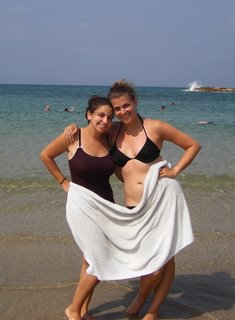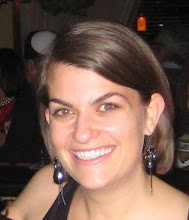

came back to Jerusalem yesterday afternoon with Tasman. We met up with Molly for dinner and then headed to a cultural fair in Bell park. There was celtic music and a drum cirlce--if you know me you know I was beyond excited.
I woke up a bit too early this morning but headed to the shuk instead of falling back asleep. It was amazing that it was so quiet at 8:30am yet only minutes later it was packed and hustling.
Tonight I went to a Hoshana Rabba evening in the Sukkah, a first for me. There was meditation, singing, and a pot luck. I was also invited to speak and so I thought I would share the words with you (these are my rough notes so I apologize if the thoughts seem scattered):
Hoshana Rabba “The Great Salvation”
--a day where the final verdict is made. It is written on RH, sealed on YK but this day is when it is made.
--Day where acc. To the Zohar, “ This is the final day of judgment for water, source of all blessings. On the seventh day of Sukkot the judgment of the world is finalized and the edicts are sent forth from the King. Zohar III, 31b-32a; II, 132a
Water is the element that sustains us. It is what will allow us to survive. For me the entire Holiday of Sukkot is one where we expose ourselves to the vulnerability of life. We create these fragile, temporary dwellings and can be subject to wind, rain, hail, lack of privacy, etc… For me this fragility reminds me of 2 things:
1.First, it’s a traditional tie to our heritage. Avraham Infeld, former president of Hillel International, has a very famous speech. It is in this speech that he asks the question what is the Hebrew word for history?? Historia? Why? Because the Jewish people don’t have a Jewish history, we have a Jewish Memory- L’zocher. In order to know who we are we must know where we came from. It is on this holiday where we remember from where we came. Not just the people, but the physical journey. A people, living tribally, being exposed to the unknown and living a life entirely based on faith. Not knowing what may happen from one day to the next, the people of Israel exposed themselves not only physically but spiritually as well.
The second thing that comes to mind is how we continue to expose ourselves, particularly in the physical sense, on this holiday. We build sukkot, some more sturdy than others, more lavish than others, etc… And each night we invite in a guest of honor. Our Ushpizin. Tonight we invite the last of the Ushpizin, David HaMelech. The greatest king of Israel. He is the last of a long line of prestigious. It is only during one other holiday of year that we call in guests to our tables. On Passover we read aloud “He who is hungry let him come and eat”. Each year you may discuss how genuine this invitation is. Do you open the door and shout it in the streets? Do you make a public declaration? Do you just read it aloud in your Hagaddah? And on this holiday we call out to our guests, in our sukkot with no sealed roofs. Our shouts are most likely overheard by neighbors or passerbys. In our fragile huts… When we are cold and wet, we may be one step closer to understanding the day to day lives of those who do not have the comforts we may take for granted. Heat, a roof, walls, etc…
I think it is food for thought of why we invite the most prestigious guests of our heritage to our table in a situation vulnerability and why we invite those in need when we are celebrating our freedom? Should they be reversed? Is it a balance that should be maintained?
There is also a custom on Hoshana Rabba to greet friends with the Aramaic saying “piska tova”, a good note. The idea is that this day of our judgments being handed down should be good notes.
On the last day of the Holiday of Sukkot I would like you each to take a few moments and think of a couple of good notes. Think about your own lives, this holiday, vulnerability of the physical, and vulnerability of the spiritual. If you could write yourself a ‘piska tova’ for this next year what would it say? If you could write one for another, who comes to mind? What would that say? I would like to take a few moments and ask that if you feel comfortable share these thoughts with the person sitting next to you. What may you wish for them?

No comments:
Post a Comment